The loud alarm on his phone woke Duc Phu up, and he realized the building he was in was shaking violently.
After working on New Year's Day, Duc Phu, a restaurant intern in Kanazawa City, Ishikawa Prefecture, central Japan, returned to his apartment on the seventh floor to catch up on sleep. At around 4 p.m. on January 1, Phu woke up feeling a slight tremor, but seeing that his phone had not yet sent out a warning signal, he continued sleeping.
Moments later, a second tremor struck, the strongest of the roughly 155 earthquakes that struck western Japan on the first day of 2024. At this point, Phu’s phone rang loudly, sending out an emergency warning of a magnitude 7.6 earthquake.
"The building I was in shook so hard that I was scared out of my wits. The alarm bell made me panic even more. I could only hold on to the wall and chant Buddha's name," Phu told VnExpress .
The shaking stopped, Phu rushed out of the house, but the elevator stopped working, forcing him to run down the fire escape from the 7th floor to the ground.
Phu ran out into the street and saw many people gathered outside in panic, because of the continuous tremors, every 20-30 minutes. When the ground stopped "dancing", Phu ventured upstairs, grabbed important documents and essentials, stuffed them into his bag, and rushed back out into the street.
Severe tremors as earthquake hits Japan on January 1. Video: Reuters, Kyodo, ANN
In Houdatsu Shimizu, Ishikawa Prefecture, a major tremor struck while Tran Thi Trang, 34, was shopping at a supermarket. Feeling the ground shake, Trang panicked, thinking "I'm going to die." A few seconds later, she regained her composure and rushed to the parking lot where her husband and young child were waiting. The distance from the supermarket door to the parking lot was only a few dozen meters, but it was difficult to walk because the ground kept shaking.
"I was running and hearing screams in my ears, many people around me fell down, unable to stand. The parked cars were tilting as if they were about to roll over," she recalled. "When we got there, I couldn't get into the car right away, I had to hold on to the door handle to stop the shaking. When I got into the car with my husband and children, my whole body was shaking with fear."
After a series of strong tremors, the Japan Meteorological Agency (JMA) issued a tsunami warning for Ishikawa and four neighboring provinces. Trang's family immediately drove home.
The country’s television stations immediately switched to special programming. Along the way, the couple received repeated warnings and saw many people driving in the opposite direction to the shelter, but they still decided to go home to collect some essentials.
The local shelter was a school, but it was so close to the sea that it could not escape the tsunami. Trang’s family and many other locals had to move to higher ground.
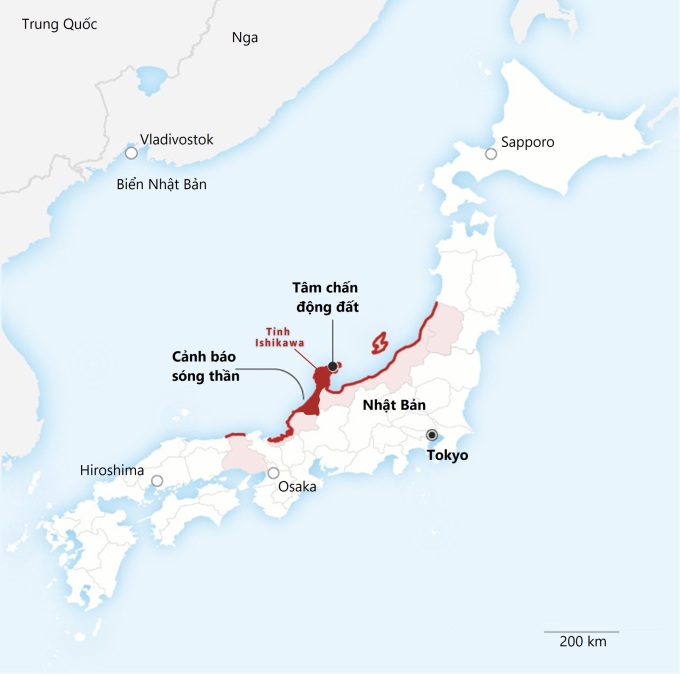
Location of Ishikawa prefecture and tsunami warning areas in Japan. Graphics: CNN
Meanwhile, Duc Phu in Kanazawa contacted the company and took refuge with his colleagues. They rushed to convenience stores and saw many locals lining up.
"I had been in Japan for 6 years and had never seen anything like this, so I followed the Japanese, thinking they would know what to do," Phu said. He and his colleagues then took refuge at the company director's house, 7 km away. Work at the restaurant had to be put on hold, as all the dishes had fallen and broken.
Japanese officials confirmed today that at least 48 people were killed in the earthquake, and the death toll could continue to rise. Tsunami warnings have been lifted, but at least six strong tremors were recorded this morning.
JIMA warned that there could be more earthquakes this week, especially in the next 2-3 days. Earthquakes are rare in Ishikawa Prefecture, and many elderly residents said they had never felt such strong shaking. "Even the director was confused, saying they would have to adapt to the situation," Phu said.
Trang's family arrived home at around 8:00 p.m. and had prepared all necessities, ready to evacuate at any time there was a warning.
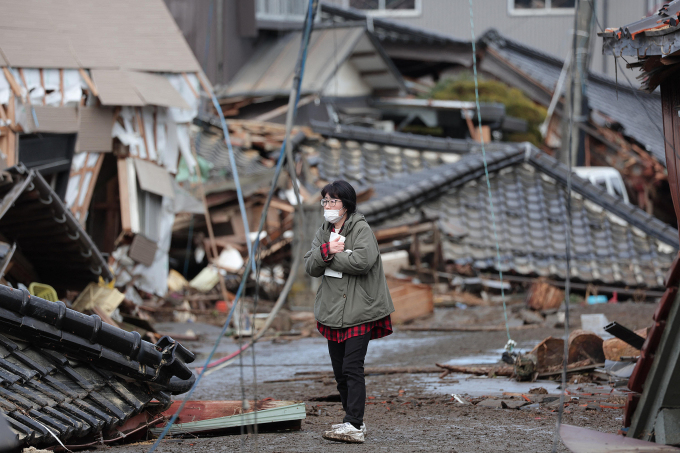
A woman returns to her house destroyed by the tsunami and earthquake in Suzu, Ishikawa Prefecture, June 2. Photo: AFP
"My family has a car, but interns and international students without vehicles will face more difficulties," said Trang, an interpreter and administrator of a Vietnamese group in the Hokuru region including the three provinces of Ishikawa, Toyama, and Fukui, adding that there are about 200 Vietnamese people in the area.
Hoang Quan, an intern in Wajima, a city that recorded a lot of damage in Ishikawa Prefecture, was lucky to escape after traveling to Hakusan to celebrate the New Year with friends.
The quake occurred while the group of friends were having a New Year's Eve dinner, causing the hot pot to fall over. Quan later received a phone call from the company, informing him that the house in Wajima had collapsed.
"I have to stay at my friend's house and don't dare go back to my hometown. Work is temporarily suspended. Everything is very uncertain right now. I just hope there won't be any more tremors in the near future," he said.
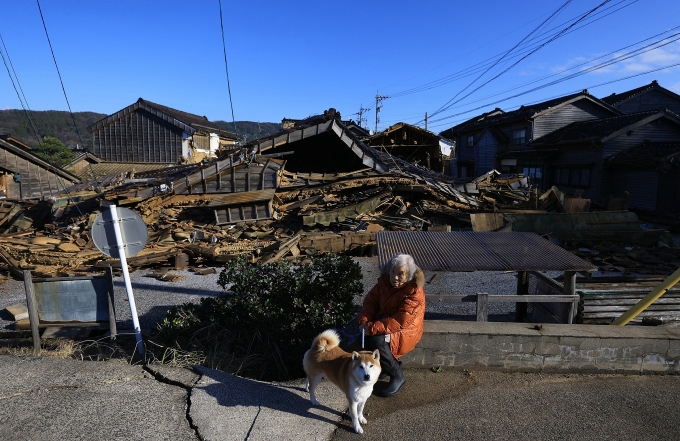
A woman and her dog sit in front of a house that collapsed after an earthquake in Wajima city. Photo: AFP
Duc Trung
Source


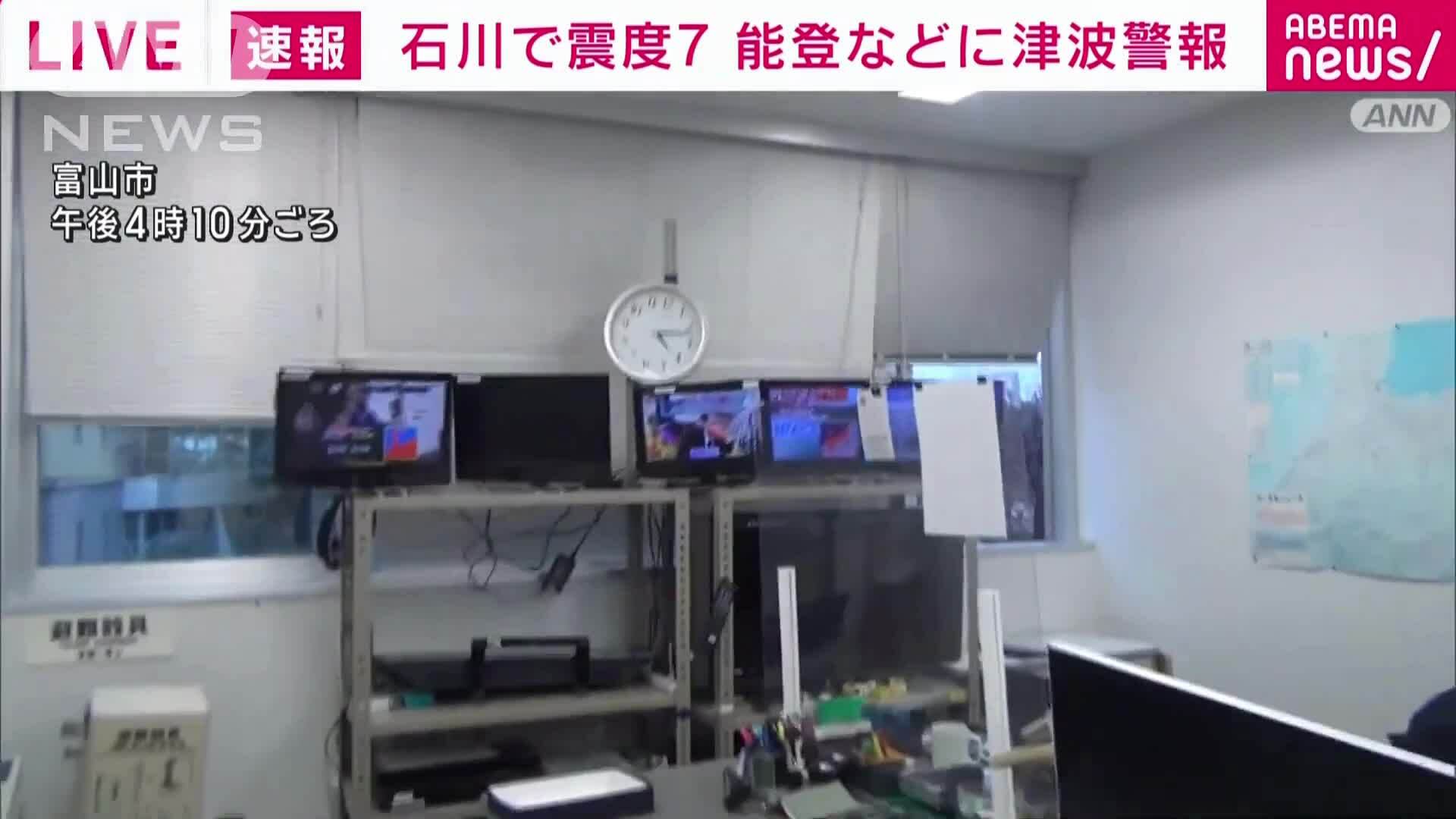

![[Photo] Looking back at the impressive moments of the Vietnamese rescue team in Myanmar](https://vstatic.vietnam.vn/vietnam/resource/IMAGE/2025/4/11/5623ca902a934e19b604c718265249d0)


![[Photo] "Beauties" participate in the parade rehearsal at Bien Hoa airport](https://vstatic.vietnam.vn/vietnam/resource/IMAGE/2025/4/11/155502af3384431e918de0e2e585d13a)



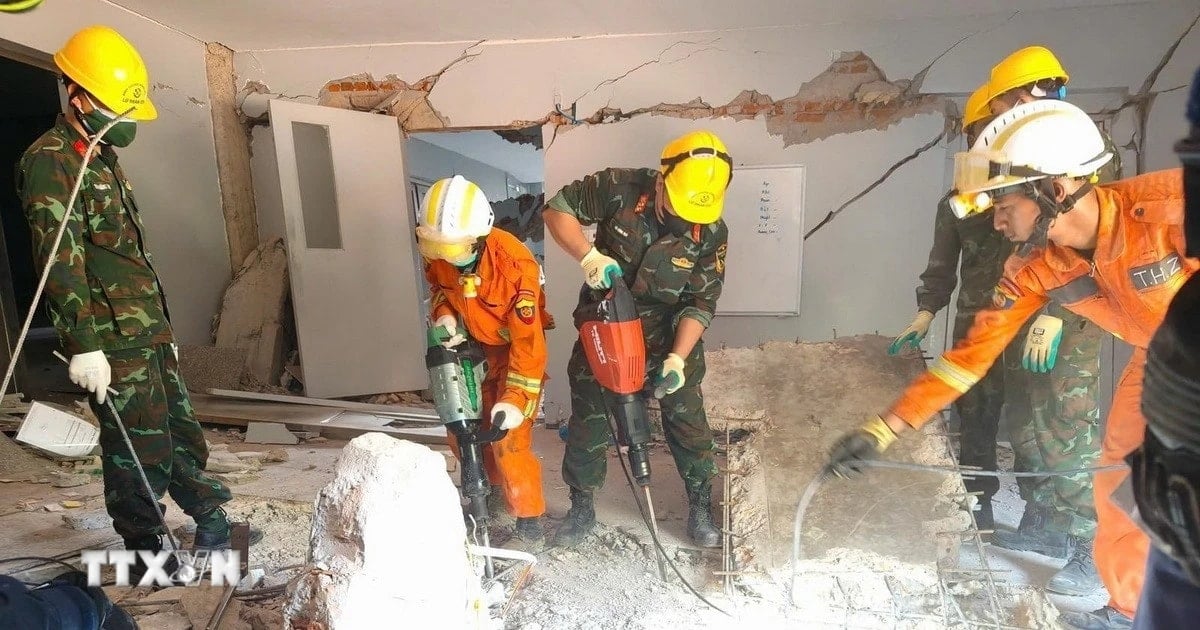







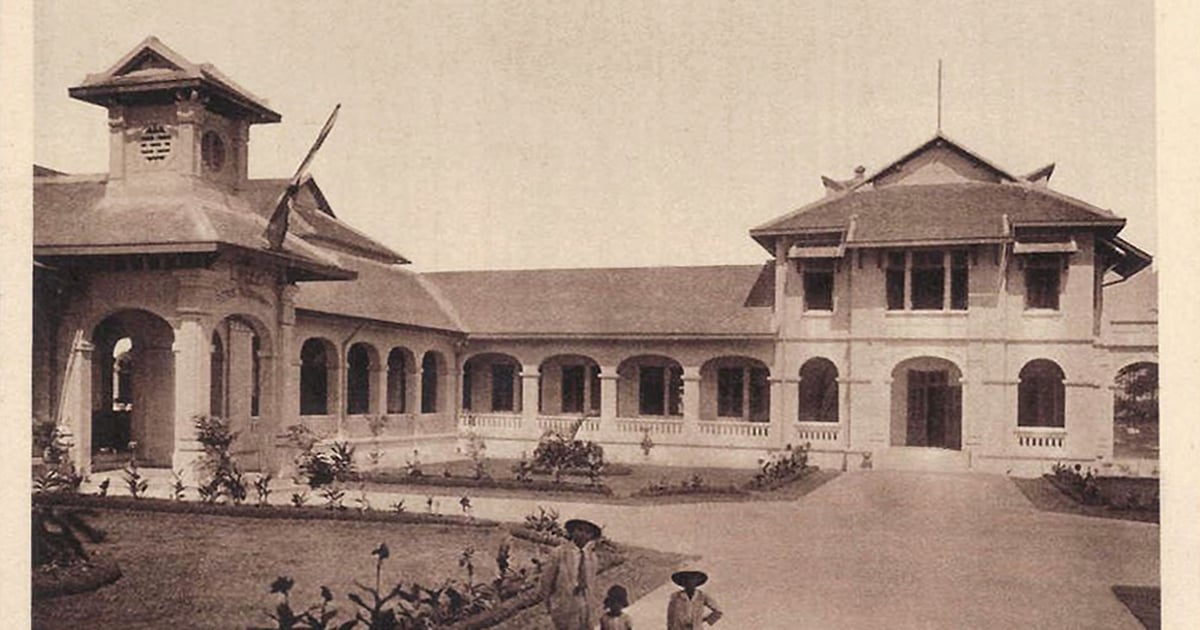

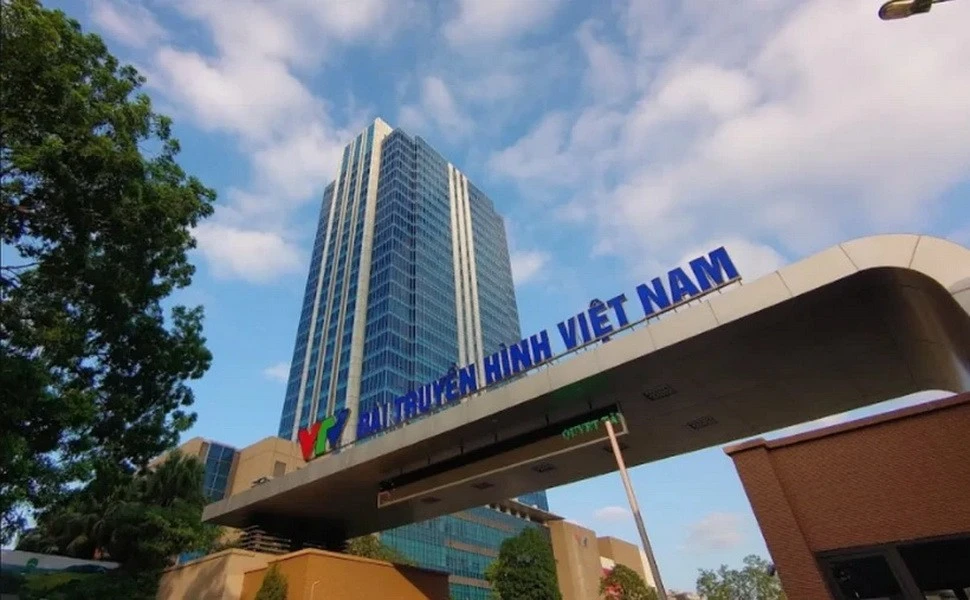
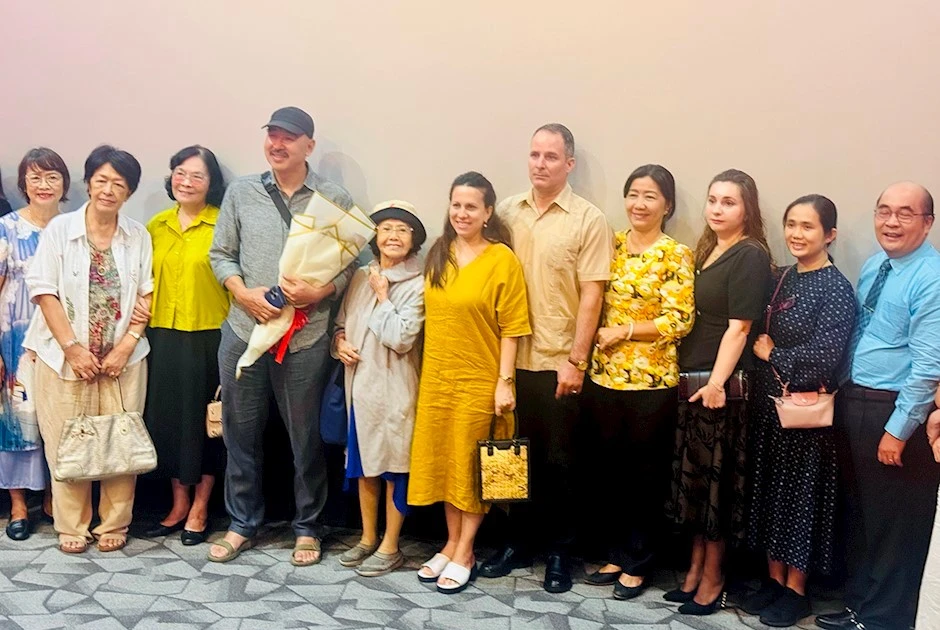
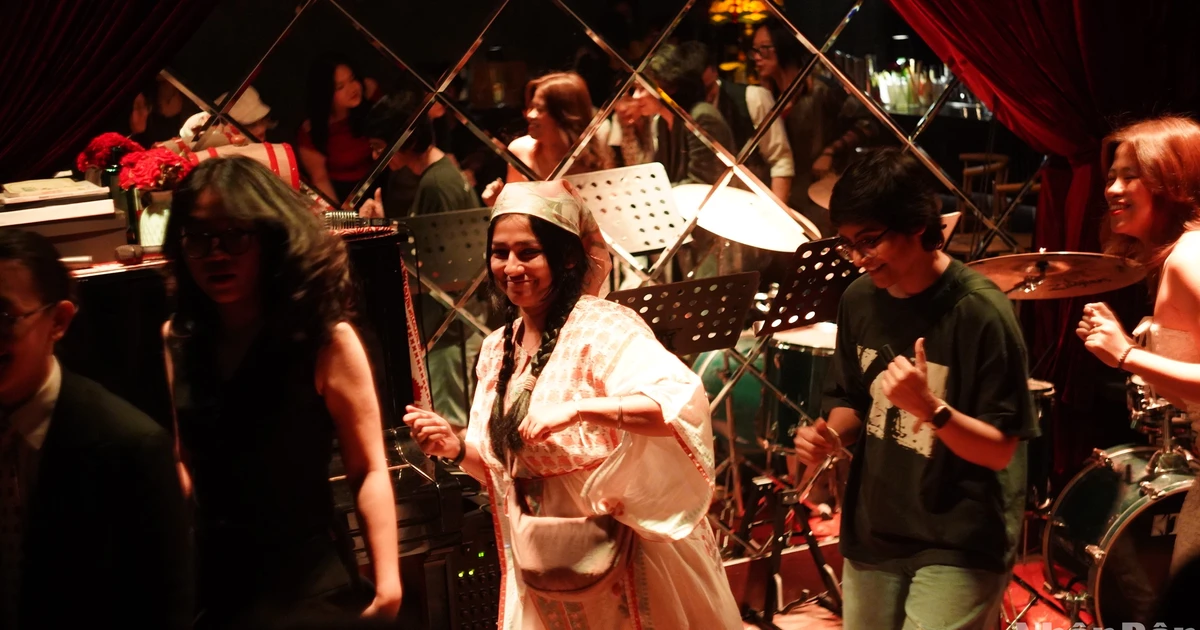
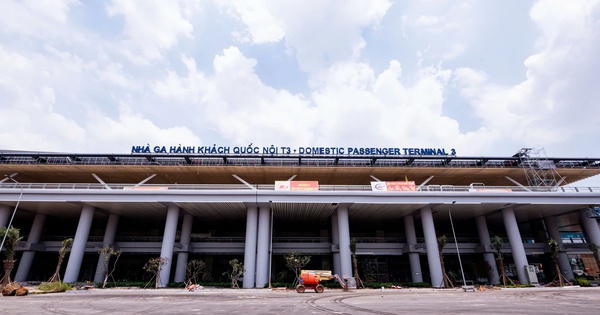









![[Photo] Summary of parade practice in preparation for the April 30th celebration](https://vstatic.vietnam.vn/vietnam/resource/IMAGE/2025/4/11/78cfee0f2cc045b387ff1a4362b5950f)



























































Comment (0)